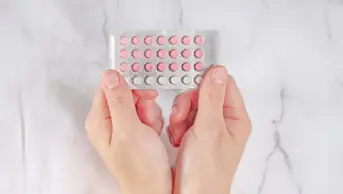
Shutterstock.com
More research data are needed on how medicines work in women, the Royal Pharmaceutical Society (RPS) has said.
In a position statement on women’s health, published on 19 July 2021, the RPS said that “currently many trials are conducted in men so impacts on women, particularly of childbearing age, are less well understood”.
The Society also wants to see improvements in how clinicians “speak with and listen to women — anecdotal evidence needs to be turned into qualitative data”.
The under-representation of women in research is “wider, and more complex, than just women — race, age, deprivation etc also come into it”, the RPS added, noting as an example that “in terms of post-birth pain, women of black origin say their voices are not heard regarding pain relief and they are not treated in the same way as white women”.
The Society also called for women’s health to be included in undergraduate pharmacy training.
Among other recommendations in the position statement, the RPS said it wants to see a campaign to reduce stigma around issues such as menstruation and bladder incontinence. Such stigma can lead to women living with “abnormal symptoms which reduces quality of life and can result in late cancer detection”, the Society said. It added that “stigma must also be reduced around pregnancy and childbirth for gay women and non-traditional family units”.
Pharmacists can help in this by “encouraging conversations, being culturally aware, approaching topics in a sensitive manner and providing public awareness campaigns”, it said.
The Society emphasised that plans to support women’s health must be inclusive, and “accessible both to anyone who identifies as a woman and to anyone who no longer identifies as a woman but still has women’s health needs”.
In comments published alongside the position statement, the Society said that community pharmacy teams “understand the needs and challenges of women in their local areas, which can help address health inequalities”.
“Greater consideration is needed about how pharmacists can fully support people from marginalised communities,” it added.
Claire Anderson, president of the RPS, said that pharmacists can “help reduce stigma and improve women’s awareness of what is normal and what is not, covering issues such as endometriosis, excessive menstrual bleeding, menopause and incontinence”.
“Improved guidance on medication in pregnancy and breastfeeding is needed to ensure pharmacists can provide consistent, evidence-based, reliable information and advice to women across Great Britain,” she said.
The Society’s position statement comes after a recent Department of Health and Social Care (DHSC) call for evidence on its Women’s Health Strategy, which closed on 13 June 2021. In its response to the call, the RPS said that women are often “considered to be exaggerating their symptoms and this then means they are embarrassed to talk about them”.
“Women often experience more, or different, side effects to medicines but these aren’t always taken seriously,” it added, saying that medicine doses “are given as a universal dose and this needs to be explored as this potentially needs adjusting for women”.
In a joint response to the DHSC’s call for evidence, the Pharmacists’ Defence Association and National Association of Women Pharmacists said: “We believe that women’s health and wellbeing is not being taken seriously enough.
“Too often, consideration of women’s health is limited to issues directly, or indirectly, linked to reproductive function rather than the broader issue of the health of women.”
READ MORE: Women’s health page


